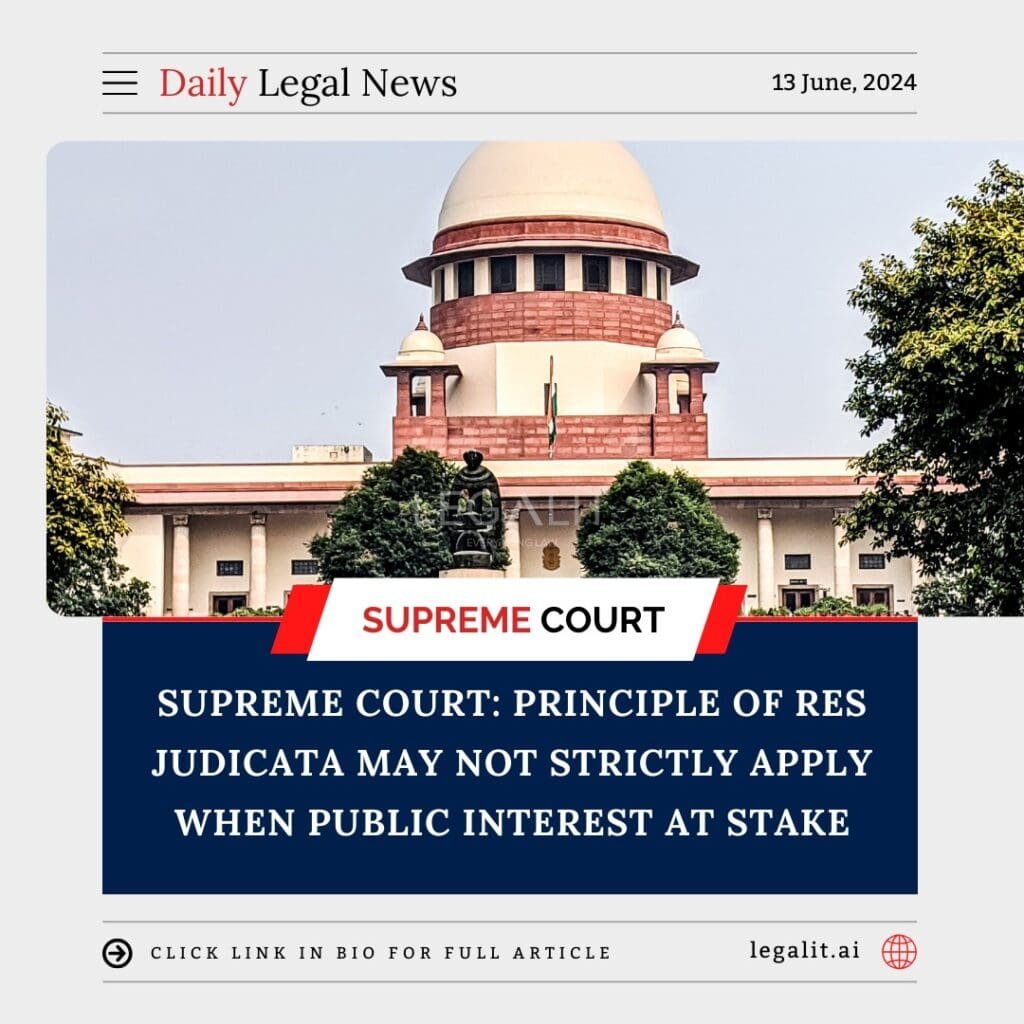
In a significant ruling, the Supreme Court of India has clarified that the principle of res judicata, which prevents the re-litigation of issues that have already been settled by a competent court, may not be strictly applied in cases involving public interest. This decision acknowledges the necessity of addressing evolving public concerns, even if similar issues have been adjudicated previously.
Understanding Res Judicata
Res judicata, as defined under Section 11 of the Code of Civil Procedure (CPC), aims to ensure finality in legal proceedings by barring subsequent suits involving the same parties and issues that have been previously decided by a competent court. This principle prevents the harassment of individuals through repeated litigation and promotes judicial efficiency and consistency.
Court’s Observations
The Supreme Court observed that while the doctrine of res judicata is crucial for maintaining the finality of judgments, it should not obstruct the adjudication of matters of significant public interest. The Court emphasized that issues involving public welfare, environmental protection, or fundamental rights might warrant a re-examination, even if similar issues have been previously resolved.
Implications of the Ruling
This ruling has broad implications, particularly for public interest litigation (PIL). It allows courts to revisit and reconsider cases that address critical public issues, ensuring that justice evolves with societal needs and changing circumstances. The decision reinforces the judiciary’s role in safeguarding public interest and ensuring that legal principles adapt to contemporary challenges.